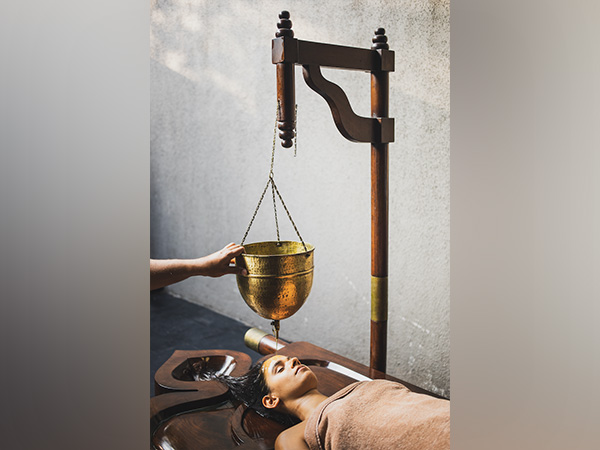93 Per cent Indians Support Smoke-Free Public Places- 97 Per cent Favour Smoke-Free Airports
Oct 29, 2024
PNN
New Delhi [India], October 29: A recent poll involving over 65,000 participants reveals overwhelming public support for 'complete smoke-free' public places in India.
Indian citizens have shown overwhelming support for 'completely smoke-free' public places, including airports, Luxury restaurants, and hotels. A recent poll conducted by the citizen-led initiative "Tobacco Free India" revealed that an astounding 92.72% of respondents are in favour of making public spaces completely smoke-free. The poll, which garnered over 65,000 responses, highlights the growing concern among Indians about the harmful effects of second-hand smoke.
Conducted in both Hindi and English, the poll included six key questions about smoke-free public places and the health risks associated with second-hand smoke. Across all questions, the majority supported stricter measures to protect women, children, and other vulnerable groups from exposure to toxic tobacco smoke in public areas such as restaurants, hotels, and airports.
"While the Cigarettes and Other Tobacco Products Act (COTPA) 2003 bans smoking in public places, it still permits designated smoking areas in airports, hotels with 30 or more rooms, and restaurants with seating capacities above 30," said Dr Uma Kumar, head of the rheumatology department at the All India Institute of Medical Sciences (AIIMS), New Delhi.
"This situation continues to pose a significant public health threat. Scientific evidence has unequivocally demonstrated that second-hand smoke can easily penetrate these designated areas, exposing non-smokers to harmful toxins and increasing their risk of various diseases," she said.
The poll revealed strong and consistent support for smoke-free public places across various aspects. Between 83% and 98% of respondents favoured smoke-free environments in different settings. When asked directly, a remarkable 98% of respondents agreed that all public places should be smoke-free. This poll was conducted between October 2nd and 19th on X (formerly Twitter) involving 65,272 participants.
97% of respondents in the poll supported making airports completely smoke-free, similar to railway stations.
"While India has made significant strides in tobacco control- strictly prohibiting smoking on trains, platforms, and station premises, as well as banning the carrying or sale of tobacco products in railway campuses- the continued presence of smoking areas in airports remains a concern," said international wrestler and youth icon Sangram Singh.
"These designated areas, often placed in prominent and attractive locations, seem to invite people to smoke. The presence of smoking zones in places like airports often sends an inviting message to smoke, undermining public health efforts," emphasised Singh, a 'Fit India' brand ambassador.
"The overwhelming support for smoke-free public places demonstrates a growing awareness among Indians about the dangers of second-hand smoke. It's a powerful message that reflects our nation's commitment to protecting public health," Kumar said.
Dr Prof Col Shekhar Kashyap, a renowned cardiologist states, "Nicotine is a highly dangerous and addictive substance that poses serious risks to cardiovascular health and overall well-being. Whether consumed through first-hand or second-hand, nicotine is equally harmful and can lead to a range of debilitating diseases."
Launched on October 2, 2024, coinciding with the 15th anniversary of India's smoke-free rules, this poll comes at a pivotal time. The Ministry of Health and Family Welfare has proposed amendments to COTPA to remove smoking zones altogether--a move strongly supported by the public, as evidenced by the poll results. These efforts align with the Ministry's ongoing nationwide Tobacco-Free Youth Campaign 2.0, which aims to protect young Indians from the hazards of tobacco.
According to the World Health Organization, approximately 1.3 million Indians die each year due to tobacco-related diseases, making it a major public health crisis.
The polls also highlighted the particular vulnerability of women and children to the harmful effects of second-hand smoke. Many respondents expressed concern about the impact of smoke-free environments on the health and well-being of these vulnerable groups.
Second-hand smoke imposes a significant economic burden on India. A recent study published in the Journal of Nicotine and Tobacco Research revealed that second-hand smoke causes healthcare costs of INR 567 billion annually, accounting for 8% of total annual healthcare expenditures. This figure, coupled with the staggering INR 1773.4 billion in annual economic losses due to tobacco use, underscores the urgent need for effective tobacco control measures, including comprehensive smoke-free policies.
Beyond cigarette smoking, the use of smokeless tobacco products remains a significant public health challenge in India. These products, which include chewing tobacco, gutkha, and pan masala, pose serious health risks and contribute to a range of diseases, including oral cancer, heart disease, and digestive disorders.
By making public places completely smoke free, India can protect the health of its citizens, reduce the burden of tobacco-related diseases, and create a healthier, more sustainable future.
(ADVERTORIAL DISCLAIMER: The above press release has been provided by PNN. ANI will not be responsible in any way for the content of the same)








